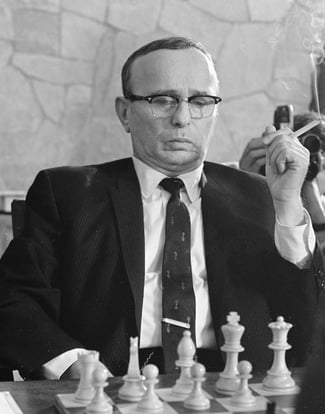Add your promotional text...
02. World Champion Samuel Reshevsky?
The strongest player of the 1940s missed becoming the world champion for one reason.
Roy Prasad
1/8/20242 min read


Samuel Reshevsky was a child chess prodigy and became one of the strongest players in chess in spite of having a career outside of chess. He was an amateur and part-time chess player, up against the professional chess players from the Soviet Union who were paid salaries, housing and other perks by the government to play chess full time.
Reshevsky could not devote the necessary time to study openings and prepare for tournaments, and as a result, he was notorious for taking way too much time in the openings, constantly getting into inferior positions out of the openings, having to fight out of a hole in the middle game, and landing in serious time trouble later in the game. In spite of that he won a lot of games and tournaments, and had victories against most of the past, present and future world champions he played during his long career.
According to Bobby Fischer, Reshevsky was the strongest chess player by the late 1940s and deserved to be the world champion. But his lack of openings preparation was enough to make the difference, and he could not win the world championship. Considering the number of games Reshevsky either drew or lost, but could have either won or drawn if he had not gotten into time trouble, it is easy to believe Bobby Fischer.
It is very possible that Reuben Fine and Gata Kamsky might have become world champions if they could play chess without having to invest time studying openings. Throughout history, many great players outside the Soviet Union and a small number of chess-friendly countries have had to either give up chess or throttle back the time they could invest into chess, thereby missing the opportunity to compete at higher levels.
This is also true for many strong amateur chess players who would love to play the game, but are put off by the prospect of having to extensively study openings and prepare for tournaments.
If only players could walk into a tournament with no home preparation and simply play the game by putting their skills to work, we believe it would encourage a lot more players to play chess competitively.
G3 Chess makes this possible!